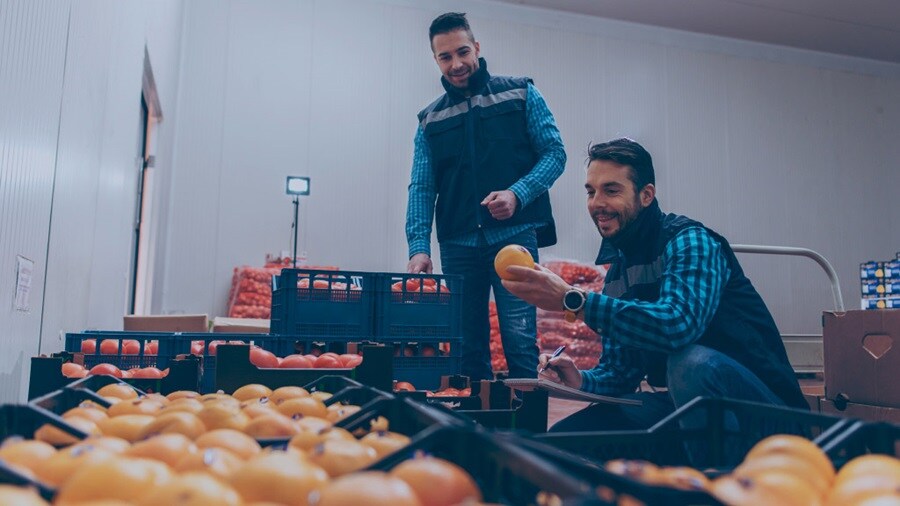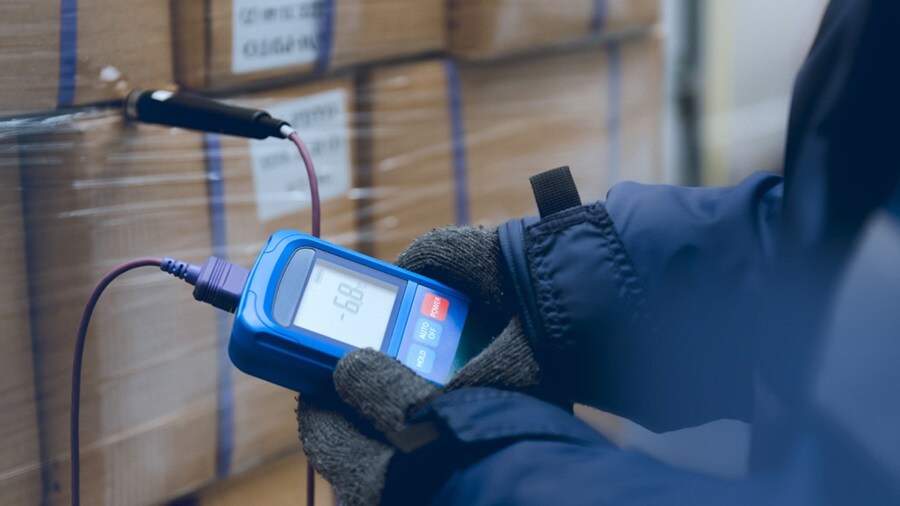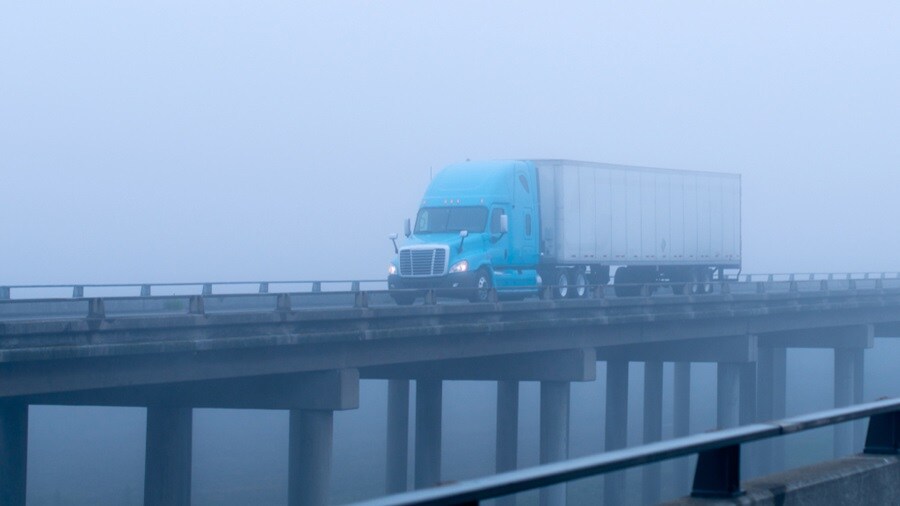From pharmaceuticals to fresh food, cold chain logistics integrity is central to the success of industries across the globe. And, central to successful cold chain logistics is establishing reliable inland transportation to secure product integrity for the vital final phase of the journey.
As demand for cold chain logistics grows, it is accompanied by increasing challenges faced by organisations that rely on it.
A staggering 71% of businesses are dealing with global supply chain disruptions – with the impact of rising inflation, surging energy prices, international conflict, changing market regulations at localised levels, and climate change testing the resilience of the entire industry.
Inland transportation serves up nuanced challenges and opportunities. This article explores multiple areas to offer insights to help companies stay on track and move forward.

Flexibility is key
Expanding markets means that companies aren’t just transporting goods from country to country but across entire continents. Faced with fluctuating geopolitical challenges and varying regulations, sustaining cold chain integrity across the full width of increasingly complex supply chains is a key concern.
These failures are primarily related to temperature and humidity excursions due to delayed or improper cooling, or refrigeration equipment failure. These breaks can have severe consequences, and so it’s the timely supply and response to data which makes a crucial difference in correcting issues.
Changing legislation is also having an impact. The EU has implemented a Farm-to-Fork Strategy for food safety, which means the entire food chain is subject to regulation. This approach states that food systems cannot be resilient to crises such as the Red Sea crisis if they are not considering food safety.
So, with the presence of ever-changing obstacles, how can companies manage inland transportation as the final puzzle piece, ensuring that goods reach their ultimate destination at the right time, and in prime condition?
Navigating the fluctuating landscape of modern supply chains means that you need to be able to adapt to changing dynamics and tailor solutions to meet specific challenges.
For inland transportation, rigid structures are no longer fit for purpose. Instead, you need multi-modal networks with in-built flexibility to allow you to adjust your cold chain solutions to overcome any challenges.
Agility and flexibility in inland transportation provide reliable speed to market.
At Maersk, our long-term strategy has been to invest in highly capable, wide-spanning networks. For inland refrigerated transportation, we have options covering rail, truck and barge.
Different countries, regions, companies and agendas demand different modes. The combination of our global networks and local cold chain expertise allows for a variety of needs to be catered to.
With options in inland transportation, we can adapt to changing market forces and deliver a reliable, complete, cold chain transportation service to our customers.

Embracing innovation
Advanced technologies allow companies to access data which can give critical visibility across a product’s journey, providing the best chances of upholding integrity. Gaining real-time data from systems monitoring cargo conditions provides companies with information to act upon if and when needed. This provides visibility into any weaknesses and can include insights around any deviations from desired temperature or humidity. In instances like this, timely responses are crucial in maintaining product integrity. This information, combined with skilled teams and asset access, provides the best chances of a successful journey.
The demand for cold chain solutions is snowballing… By investing in new technologies, reducing food waste, and helping workers operate more efficiently, cold chains can meet this new demand.
At Maersk, our Remote Container Management tool, Captain Peter, enables customers to have eyes on their goods from the moment they’re locked up in the container, accessing key data for their crossing from port (sea or air) to land. Tracking cargo throughout its journey allows businesses to receive live updates on transit times at each stage, and gives trained teams the insights required to be proactive and responsive.
With teams highly experienced in inland transportation, we are able to act fast, and crucially, plan ahead and adapt. This means reduced delays at customs and during transit, ensuring the cold chain is maintained at every step of the journey.

Integrating decarbonisation-focused solutions
In recent years, decarbonisation has shot to the top of the corporate agenda. Today, companies are increasingly concerned about their impact on the climate and are actively taking steps to reduce their greenhouse gas (GHG) emissions footprint.
As a major contributor to Scope 3 emissions, logistics play a key role in our efforts to battle climate change. It’s an issue that’s only exacerbated by industries that rely on cold chain logistics.
As a result, many businesses face a dilemma: how do you maintain the efficacy of cold chain transportation while reducing its GHG emissions?
At Maersk, we understand the issues that our customers are grappling with, and we’re tackling the challenges too. We’ve set our sights on achieving net zero GHG emissions by 2040, and we’re also helping our customers to decarbonise their own operations. That’s why, we’ve developed new products and technologies to embed decarbonisation directly into the supply chain.
We’ve already developed solutions to help decarbonise our ocean cargo; now we’re doing the same on land. We’re investing in HVO (biofuel) barges and electric vehicles that will future-proof our supply chains by providing lower GHG emissions alternatives to traditional transportation fuels.
These innovations have seen electric trucks moving through Germany in force, with advances to be made across Scandinavian countries too. Every aspect of Maersk’s network is being evaluated for opportunities to reduce GHG emissions, and inland cold chain logistics provides a major opportunity for this. The Maersk mindset focuses on delivering innovative but realistic solutions that can be embraced in the long term, and we will take our cold chain partners on this journey with us.

Moving forwards together
The world is changing, but the importance of securing a reliable solution for inland refrigerated transportation is here to stay. Shifting political landscapes, regulatory controls and economic forces are impacting operations across the globe.
At the same time, companies are working tirelessly to address the issue of climate change and reduce their GHG emissions.
It’s a perfect storm for supply chains, especially those that require constant governance to ensure product integrity is maintained.
The final stage of the journey, typically inland transportation, is crucial to product integrity. This component of the cold chain must enjoy the required flexibility - through a multi-modal network - of its counterparts to provide a truly effective chain delivering life-sustaining goods to customers worldwide.
To navigate this ever-changing landscape, companies can't go it alone. Instead, they need to work in partnership with their logistics providers to build agility and resiliency into their inland operations. It’s only by working together that we can overcome the challenges facing the world of cold chain logistics.
A robust solution covering inland cold chain transportation secures the integrity of your products and a reliable speed to market. Harnessing flexibility, agility and decarbonisation, with a team focused on your success, will provide companies with the optimum solution.
Learn more about inland cold chain logistics here.
未来,您想随时了解必读行业趋势吗?
您已经完成了,欢迎“登船”!
很抱歉,发送您的联系请求时出现问题。
请查看表单字段,确保所有已正确填写所有必填信息。如果问题仍然存在,请联系我们的支持团队以获得进一步的帮助。
未来,您想随时了解必读行业趋势吗?
使用此表格注册,即可直接在您的邮箱中接收我们的洞察见解,进入一个真正的综合物流世界。简单操作,即从我们为您量身定做的精选文章中获得启发,了解相关行业洞察信息。您可以随时取消订阅。
I agree to receive logistics related news and marketing updates by email, phone, messaging services (e.g. WhatsApp) and other digital platforms, including but not limited to social media (e.g., LinkedIn) from A. P. Moller-Maersk and its affiliated companies (see latest company overview). I understand that I can opt out of such Maersk communications at any time by clicking the unsubscribe link. To see how we use your personal data, please read our Privacy Notification.
By completing this form, you confirm that you agree to the use of your personal data by Maersk as described in our Privacy Notification.













